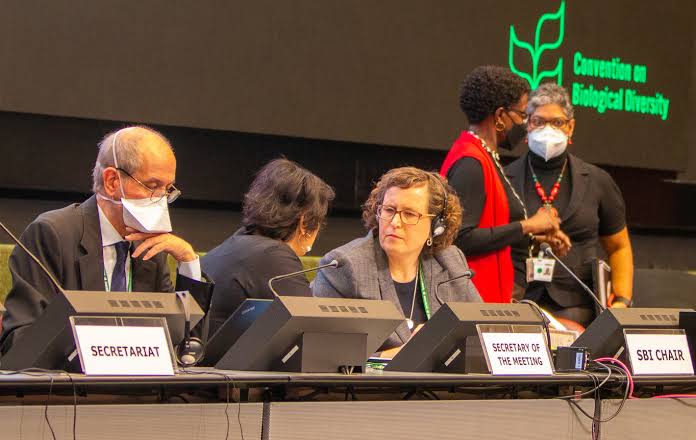The 26th session of the Subsidiary Body on Scientific, Technical and Technological Advice (SBSTTA-26) of the Convention on Biological Diversity (CBD) came to a close late Saturday in Nairobi, Kenya with recommendations that, among other, address biodiversity in the oceans, provide guidance on modern biotechnology, compile scientific tools and guidance to support the implementation of the Framework, coordinate actions related to global health and outline the framework of indicators that will monitor progress on The Biodiversity Plan.
Delegates to the six-day meeting, representing the 196 contracting Parties to the CBD worked solidly over the last six days on issues that will be advanced to the upcoming 16th meeting of the Conference of the Parties, or COP 16, to be held in Cali, Colombia from 21 October to 1 November 2024.
Senka Barudanovic of Bosnia and Herzegovina, Chair of the SBSTTA Bureau, said: “I sincerely congratulate delegates for their hard work in the spirit of compromise that allowed us to to provide COP 16 with a key opportunity to strengthen the scientific and technical base to fully implement The Biodiversity Plan and monitoring its progress.”
“The work we have completed here sets the stage for significant COP 16 decisions on EBSAs, risk assessment, and the monitoring framework for The Biodiversity Plan. The proposed Global Plan of Action on Health will also highlight the environmental dimensions of human, animal and plant health.”
SBSTTA-26 discussed the monitoring framework for the Kunming-Montreal Global Biodiversity Framework. The monitoring framework was adopted at COP15 and this work will inform how the monitoring framework is used by countries in their national reporting. This will provide a basis for robust and consistent tracking of national, regional and global progress.
Regarding agenda items related to biosafety and biotechnology, the Parties recommended new voluntary guidance on the risk assessment on engineered gene drives, which will strengthen transparency and scientific rigour in the process and continue the important work on the detection and identification of living modified organisms. For the issue of synthetic biology, further discussions are needed on the possibility of continuing horizon scanning – the systematic detection of early signs of potentially important developments – for synthetic biology. There was agreement on the strong need for capacity-building and development, technology transfer and knowledge-sharing, especially for addressing inequity that affects the participation of developing countries.
Marine and coastal biodiversity was also a key item, with Parties making significant progress that will set the stage for COP 16 to hopefully set the future for describing ecologically or biologically significant marine areas (EBSAs). If agreed at COP 16, this would come at critical time when EBSAs are most needed, as it can play a key role in supporting work under the new international agreement on Biodiversity Beyond National Jurisdiction.
A proposed Global Plan of Action on Biodiversity and Health connects a variety of actors and their expertise to act on biodiversity and health. Through actions on pollution, species management, mainstreaming and access and benefit sharing, the Global Plan of Action mobilises The Biodiversity Plan as a framework for activities.
“This meeting showed the willingness of Parties to the CBD to reach consensus on the important scientific foundations of our work to achieve The Biodiversity Plan.” said David Cooper, Acting Executive Secretary of the CBD. “The discussions have wide-reaching implications on biosafety, biotechnology, biodiversity in our oceans, and new global work on health of people, plants and animals.”

